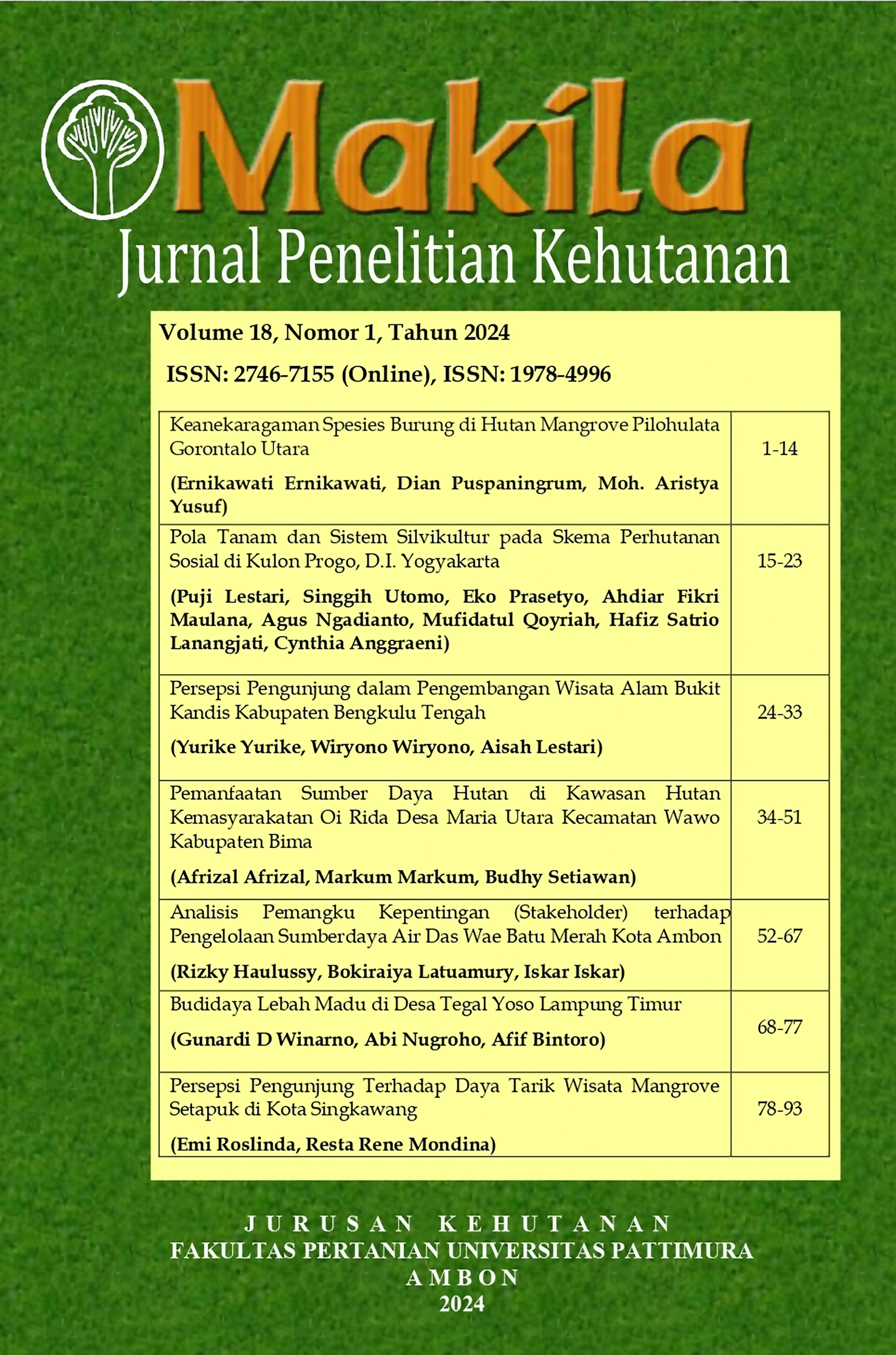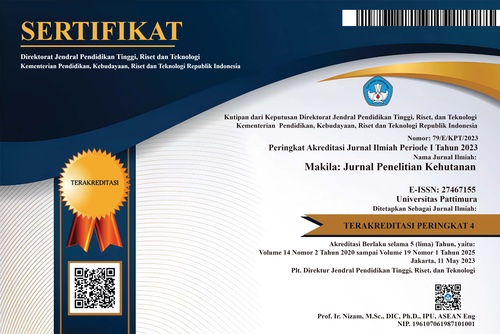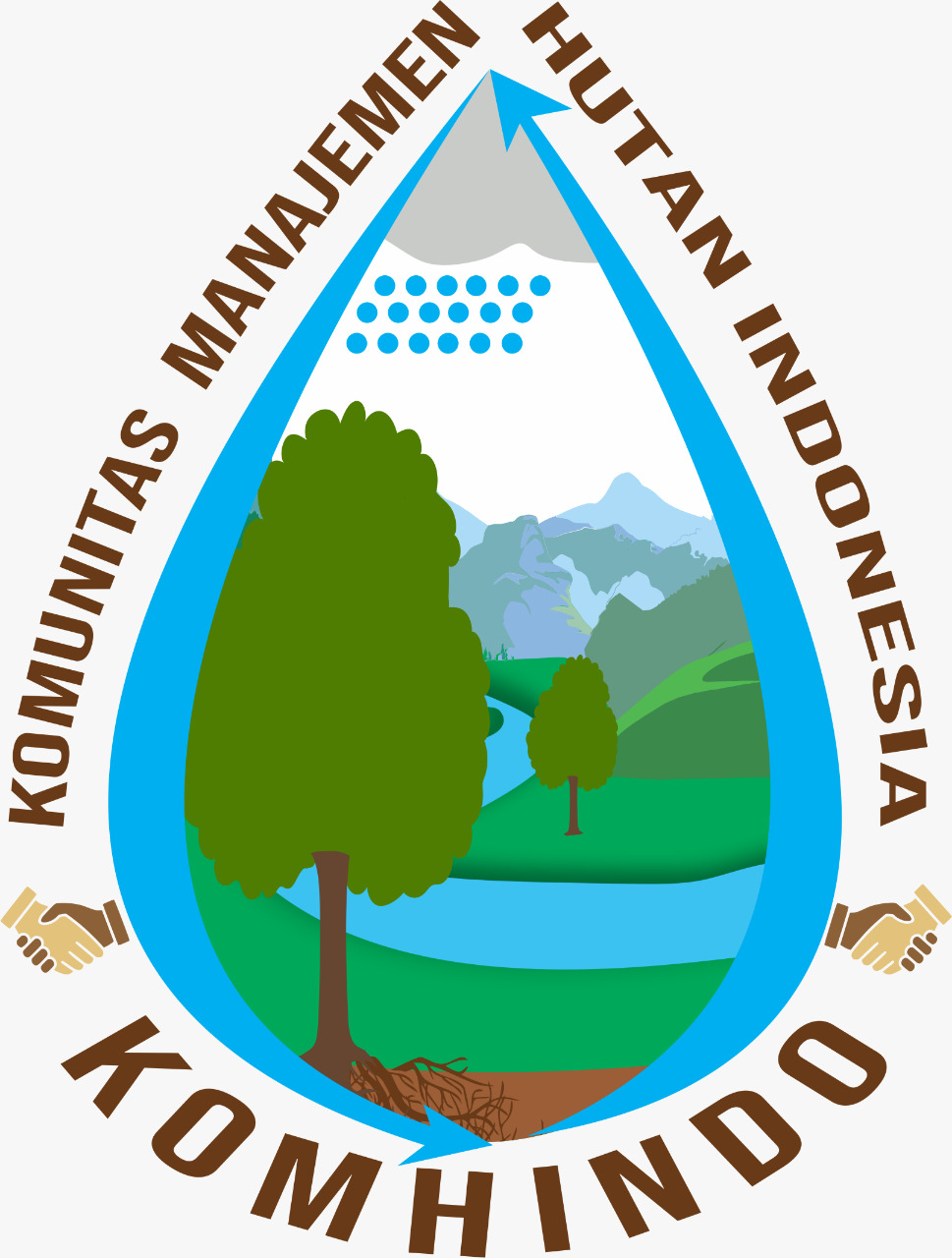PERSEPSI PENGUNJUNG TERHADAP DAYA TARIK WISATA MANGROVE SETAPUK DI KOTA SINGKAWANG
Abstract
Setapuk Mangrove tourism has the potential to be developed into natural tourism because it has the potential in the form of natural scenery, rainbow bridges and mangrove areas with various attractions and tourism infrastructure. The purpose of the study was to explain the perception and satisfaction of visitors to the attractiveness of Setapuk Mangrove tourism through available facilities. The method used a survey with 50 visitors as research informants selected by accidental sampling. Data collection was conducted through observation and interviews using a list of questions. Data analysis was carried out in a qualitative descriptive manner. Visitors' perception of the Setapuk Mangrove tourism area feels interested and quite satisfied with tourist objects in the form of natural scenery, flora, fauna, beaches, rivers and roads/tracks. It is also supported by the condition of facilities, cleanliness, comfort, safety and satisfaction of visitors as well as the physical condition of tourist facilities and infrastructure that are available or well maintained. It is supported by several tourism activities that get satisfied assessments by visitors, namely when observing mangrove beaches by speedboat. Accessibility conditions that are not supportive and physical conditions of infrastructure that are not good are basically weaknesses as well as advantages, because accessibility in muddy conditions will get more attention from visitors/researchers with educational purposes that require elements of unity with nature so that these conditions remain original, so this area has potency for ecotourism
Downloads
Copyright (c) 2024 Emi Roslinda, Resta Rene Mondina

This work is licensed under a Creative Commons Attribution 4.0 International License.











